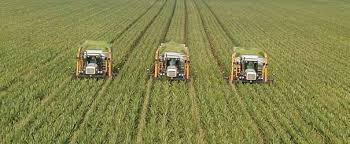Challenges before second Green Revolution
Merely announcing the second Green Revolution is not enough – there is a need to speed up agricultural production as well. In order to achieve a high growth rate and maintain food security, increased productivity is extremely important and this will be a challenge in the upcoming Union Budget.
Agricultural reforms have been taken up in the past years by the government but not whole-heartedly. They did not yield desired results, thus turning farming into a loss-making occupation. With basic facilities and infrastructure lacking, there is a great and immediate need for reforms in the agri-sector.
Fortunately, growth in the sector has touched 5.4 per cent, up from 0.4 per cent; and the government is quite pleased with it. But the challenge is to keep up this growth rate and at the same time eliminate the problems of farmers.
In order to increase production, government had called for second Green Revolution in northern states and that mission could get a significant boost this Budget.
Government might be happy with the current rate of growth in agriculture but the troubles of farmers are far from over. It is therefore being expected that the Union Finance Minister may create new and attractive provisions to improve conditions.
Efforts have been made to rescue loss-making agriculture but they have come to naught because of a pathetic distribution systems in place. Public Distribution System (PDS) laws are different for each state. Restrictions on inter-state trade of food grains, no direct sale of produce in markets, local taxes, octroi and various other local laws have almost strangulated agriculture.
Even the cost of engaging in farming has gone up but due to a lack of any marketing awareness, farmers are forced to sell produce cheap. Finance Minister needs to pay attention to this aspect this Budget.
Except wheat and rice, dependence on import is increasing vis-à-vis other crops and that is a challenge for the minister as well. More than 50 per cent of vegetable oil is imported for domestic use while import of pulses has reached 40-45 lakh tone in the last decade. Gap between demand and supply needs to be tackled immediately.
